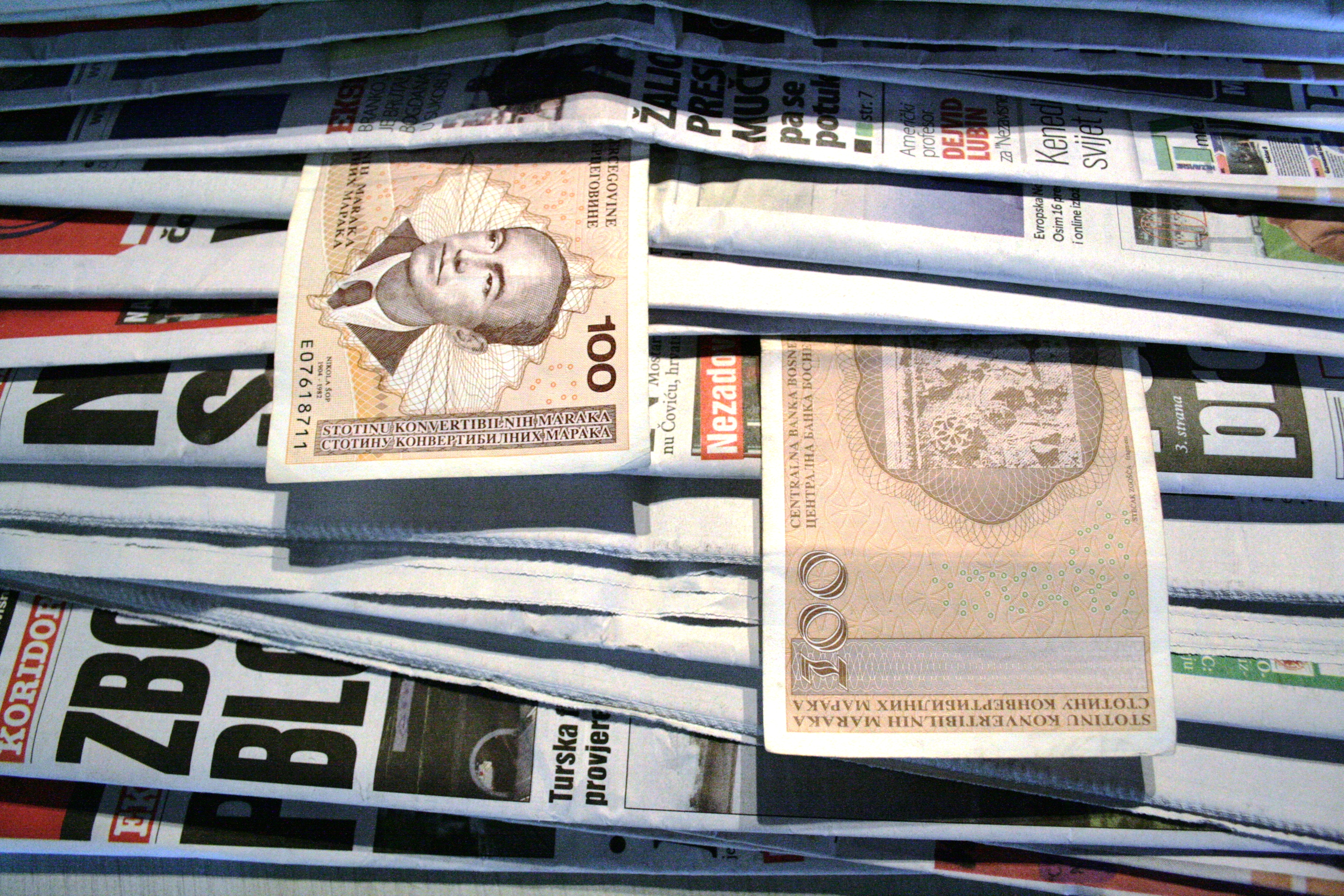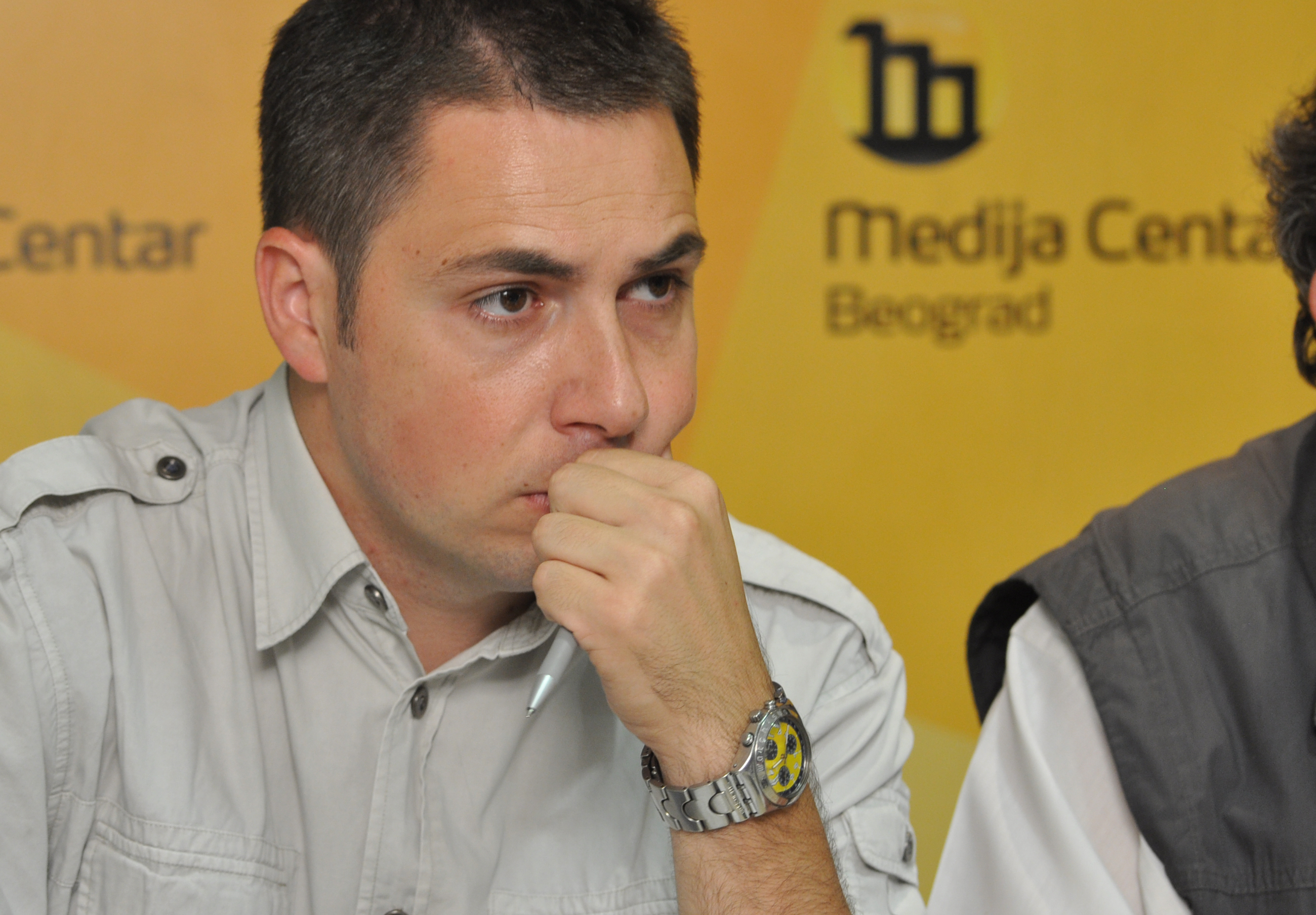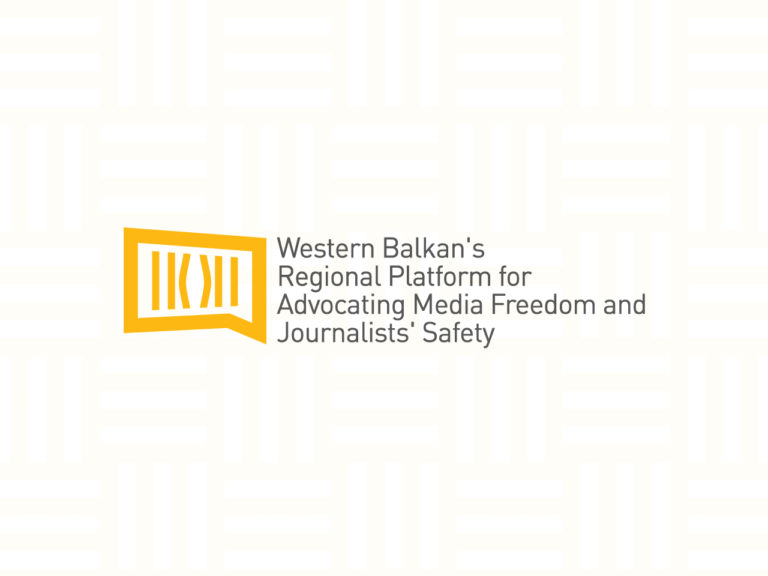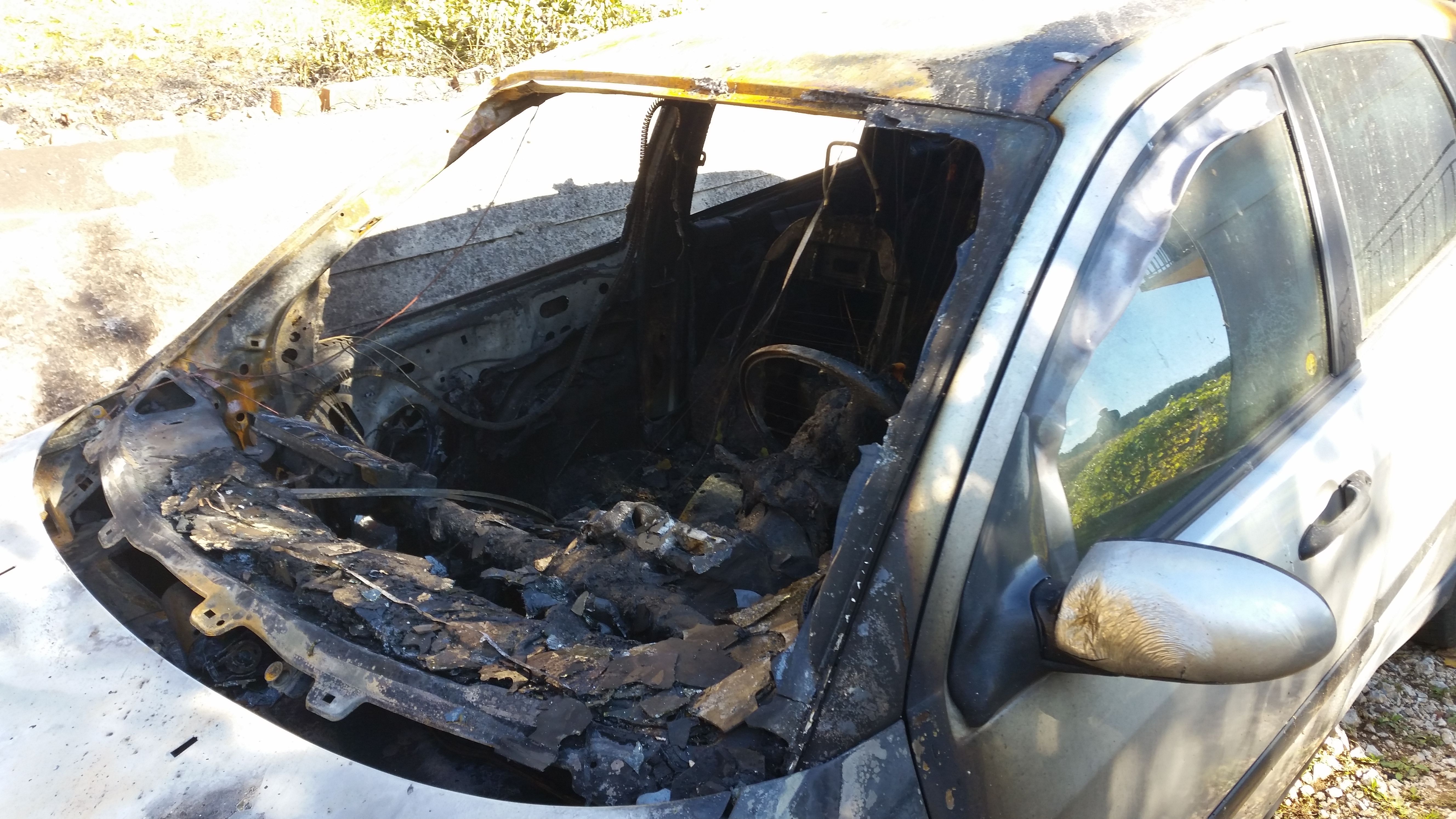SARAJEVO, 05.04.2018.-Freedom of expression in BiH is still not on a satisfactory level and journalists are often exposed to various kinds of pressure, even including direct threats. This is confirmed and verified through special reports released by numerous international organizations that follow and monitor the global situation as far as freedom of expression is concerned. Many cases of direct jeopardizing and endangering of journalists” lives have been reported, including threats directed to people who had been talking openly about certain and concrete criminal occurrences, including corruption and other associated local deviations, misuses, ignoring by governing officials to make certain actions in order to prevent this from happening and the appearance of conflict of interest as well.
Journalists working in small areas and communities, where most locals know each other, find their work rather scabrous, complex and often dangerous, as far as their own safety is concerned, including the safety of their families and their property as well. Journalism has become significantly dangerous, but has also become more responsible – based, because journalists are expected to point out, outline and highlight crucial and key the problems and to deal with them, particularly in society such as Bosnia and Herzegovina, society where most institutions fail to perform their work and fulfill their duties; society where, according to reports by many non – governmental and international organizations, high level of corruption has emerged and is still present, including nepotism and political party obedience and loyalty by many individuals and employment of those considered as suitable and political party – biased people.
Journalists have been working under such conditions for decades, however, local public response failed (it had never appeared) or in folk’s word, people “got used to this” and ignore any news that may be considered as undesired and negative news on daily basis. One affair on exposed criminal deeds is usually covered up by (apparently) “more interesting” news and the information providing would thus remain on a local daily news level. There are no responses and no actions taken by official authorities and the even general public often remain silent. Criminal actions remain unprocessed and penalties for such actions are rare which additionally encourages local criminals to continue with illegal actions consequently making a profit and getting rich. Unfortunately, these affairs often include those who should, in the first place, obstruct and prevent any illegal actions pursuant to official functions they perform.
Many involved in the above-mentioned crimes have recognized themselves in different reports, stories, articles, and posts, although the authors never mentioned their full names because they were not sure about their personal details. They managed to obstruct reporters from further investigation reporting and covering specific affairs in order to re-direct the attention of the general public to another issue thus protecting themselves from responsibilities they had been held for. Covering particular stories journalists have often been unaware about who may have been tied with illegal actions which would additionally present them (journalists) with problems including disturbing and putting themselves in awkward positions where people, whom they had never mentioned in their reports and whom they had never met before, approach them and express their anger because they believe that reports were directed against them for no reason. Because of them, general public hardly or almost never receives necessary information, since they intentionally hide them screening thus their illegal actions and criminal offenses.
Official authorities often obstruct journalist from doing their job
Journalists writing and outlining social deviations and criminal occurrences, expose themselves to misfortunate situations until they get particular, required and necessary facts relevant to their reports, stories, and articles. Additionally, they jeopardize their families and, because of that, they sometimes jeopardize their jobs with their employers, whereas criminals often remain intact by all means. With an exception of few honest and loyal individuals at all state system levels and governing levels, most “experts” fail to perform their duties and do not do their job properly and on one hand, do not implement legal empowerment and duties (as they should) neglecting thus completely their professional and social responsibility, while their conscious, on the other hand, remains a mystery. Professional, engaged and committed journalists want to do their job properly and fulfill their duties, fighting at the same to discover and get genuine and true facts and provide public with truthful information, are left on their own and often have neither support nor protection from official governing authorities.
Instead of being provided with particular information by official inspectors, members of supervising and monitoring boards, judiciary officials, tax office authorities or other official authorities, journalists must investigate, conduct research does their job and writes about system failures, inaction, obstruction, tax evasion, corruption, nepotism and other illegal actions.
In many cases, the above mentioned or municipal officials disallow and disable media representatives to approach venues considered as interesting as far as the public is concerned. Additionally, municipal and governing officials at all levels make “selection” in deciding which journalists’ team shall be allowed to record and report about particular events, venues or accidents and get information (facts) and which journalists’ team shall be deprived of approaching the above-mentioned events, venues or accidents. By doing this, the officials refute the public from being provided with proper and objective information regarding certain events or actual problems, thus creating the suspicion regarding quality and good will of this work, that is, cover particular criminal and illegal actions from being exposed. The new set of laws should certainly sort out this issue thoroughly. Unfortunately, due to the fact that law provisions have not been implemented properly, it is rather hard to expect that anyone could provide protection for journalists and create safe conditions regarding full safety and security for media representatives. The fight for this issue must continue in terms of allowing legal freedom of expression and information access deriving from all trades and work spheres through the implementation of legal provisions. The public has the right to know about social affairs and to get information regarding all public figures and bodies, including official institution representatives that are obliged to respect this public right as they should also assist journalists in providing the public with objective, proper and beforehand information.
Different forms of direct and indirect pressure
Pressures imposed upon media representatives in local communities have different forms and tend to become more and more sophisticated, although direct, as most brutal and most vulgar pressures, still, exist in reality.
Phone calls and disturbing, deliberate street encounters, open public threats and sometimes physical assaults against journalists represent some forms of direct pressures which jeopardize professional and human rights and endanger journalists’ freedoms.
Individuals use meetings and mass rallies to launch and initiate conflicts with journalists. Under these circumstances, apart from threats they receive on the regular and above-mentioned basis, journalists’ work is accordingly being diminished and they are often humiliated in public.
This kind of method is often used by powerful politicians that use mass rallies for personal promotion of their (so-called) “capacities, credits, benefits and power” that is, their “perfection and firmness”.
There are many kinds of direct pressures imposed on the journalist, including those jeopardizing and endangering their health condition, personal safety and eventually jeopardizing their lives.
It seems rather sad that those in charge with the implementation and protection of laws (in various fields of life and work) fail to provide protection for journalists in these areas; instead, journalists are left on their own in their combat for the sole truth. Instead of joining forces with journalists, assist them, support and help them in their investigation and work (including information providing and provided evidence in exposing particular affairs, criminal actions and illegal deeds committed); they rather inform doers and committers of the above mentioned deeds and criminal actions informing them that some “Mickey Mouse type of journalists are sticking their noses where they shouldn’t (making investigations and survey where these criminals are or may be involved with)” and that they (investigative reporters) should be stopped from making any further steps in their investigations and survey.
These cases represent and display samples of depraving and destructing social system, and, according to most recent information, the number of these “informers” is increasing.
Direct and indirect threats and threats against family members, including friends, acquaintances, also persists thus jeopardizing family members and putting journalists’ properties at stake. Also, journalists receive threats of getting sacked from work (losing their jobs), threats that local media houses may get shut down, threats regarding redundancies (or some other and similar kinds of pressures and blackmailing) present journalists in small local communities with serious problems, although they simply want to remain professional in performing their work and duties despite “miserable” wages they earn most of the time. Disabling marital partners from getting employed elsewhere, imposing journalists’ children with pressure in their schools, disallowing scholarships and acquiring other types of rights for other members of journalists’ family members, altogether represent occurrences that many journalists have been facing continually. Powerful figures tend to have journalists under their direct control as on one hand, their intention is to direct their work, and, on the other hand, they try to distant and marginalize journalists socially and economically, putting their existence at stake or simply they manage to destroy their personal spirit completely.
In order to block their work and to apply a certain amount of “discipline” and make journalists work according to instructions provided by either economic or mighty political local lobbies or individuals, media representatives (often referred to as “seventh force representatives”) are often compromised including their family members. Indirect forms of pressures are simply endless, inexhaustible, and indescribable and began to appear more and more sophisticated.
Loyal journalists are financially more stable and safe
Unfortunately, due to employing procedure in local media houses, mostly based on family ties or political party loyalty, instead of employment based on professional competences, those “journalists” in most cases chose easier way by expressing maximum loyalty and work in accordance to instructions or guidelines directed by their political or economically powerful figures. These journalists are accordingly awarded by receiving more money and having certain privileges, and nobody dared to disturb them in their work and let alone to threaten them. In most local communities in BiH, journalists have been imposed with some kinds of pressures and they had to develop their own “defense mechanism”, build their professional and personal status in society, with no help provided by anyone, and to continue in doing their work and trying to remain independent and objective as much as they possibly can.
The scope of success would depend on personal virtues and skills, including personal character as well. Highly and shamefully low wages in this particular field brought journalists to the edge of their existence and many of them have been “forced” to sacrifice their professional ethics code in order to please and satisfy fundamental existential necessities and have to trade in the professional ethics code for loyalty to political powerful figures and tycoons.
More discipline, order, and improvement of material position
What kind of program can be edited and broadcasted by one or two persons? Who wants to have their own newspaper and defined the minimum number of employees and special staff and it is necessary to determine and define special conditions that new employees must possess and do journalists’ job?. Following the situation for years in this particular field, I have realized that an insufficient number of skillful and experienced persons work in media houses which demoted and degraded journalism as occupation. These persons often “emerged as journalists” overnight through “familiar way” in some newspapers and additionally become editors. They refuse to allow discussion with colleagues that do their work professionally at highest level resisting all pressure imposed against them. Also, the newly emerged editors appeared unfamiliar with editing office procedures and similar discussions, including joined talks (with their colleagues) regarding certain topics, themes and issues and how they should be implemented.
Journalists should focus more on the question of their own position and status, but they should also distance themselves from those who violate journalism code and professional ethics and use every opportunity to fight against persons that are not considered as professionals and person that become “journalists” overnight.
This text is a part of E-Bulletin– fourth edition of special serial of BHN online bulletin implemented through the “Media and Public Reputation” (origin. “Mediji i javni ugled”) project, also representing a contribution to public debate regarding the transparency of media ownership and upholding and encouraging the passing of set of laws aimed to advance media field and information market in BiH.






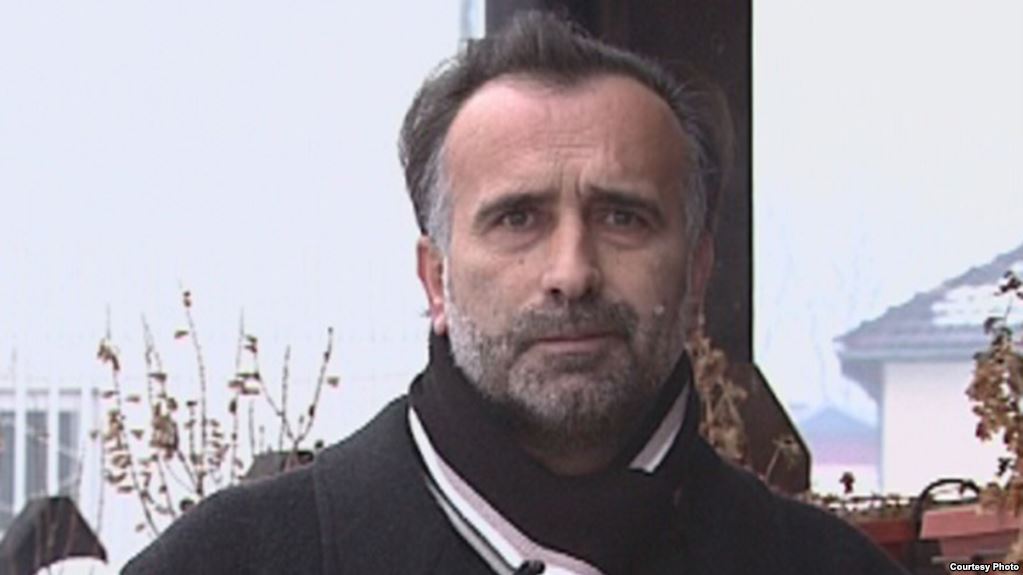
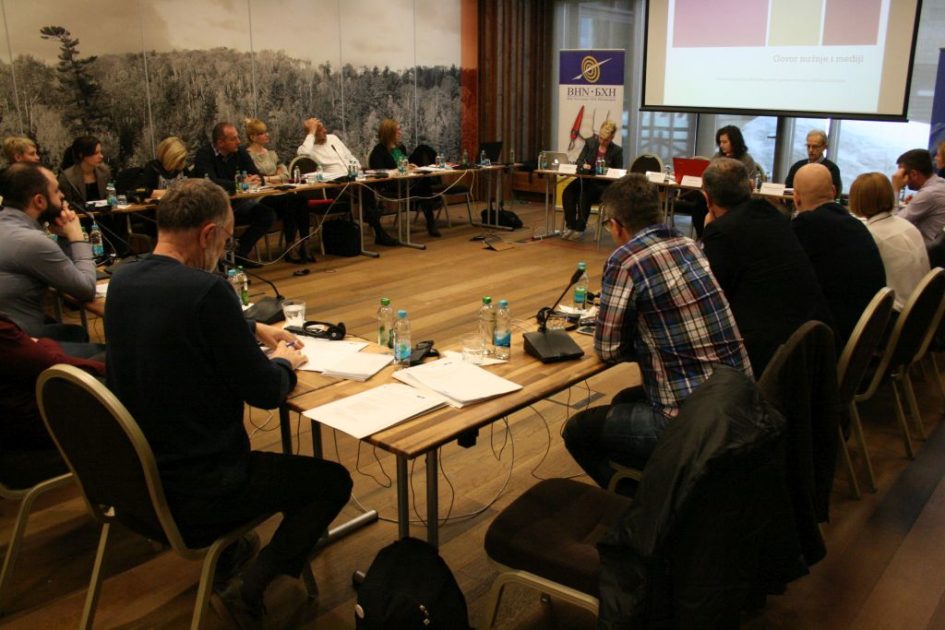
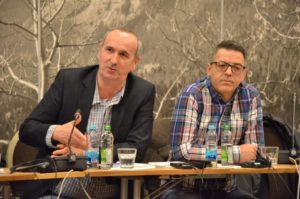 JAHORINA, 04.04.2018. -Media are required to inform the public on topics concerning hate speech, in a way that inappropriate speech is critically questioned and deconstructed in electronic media in BiH.. The application of professional international standards and norms of hate speech, as well as respecting journalistic codes and laws in creating programs is a precondition for defense of journalists and media from potential lawsuits in the courts, concluded the participants of the inter-professional round table, which was concluded today in Jahorina.
JAHORINA, 04.04.2018. -Media are required to inform the public on topics concerning hate speech, in a way that inappropriate speech is critically questioned and deconstructed in electronic media in BiH.. The application of professional international standards and norms of hate speech, as well as respecting journalistic codes and laws in creating programs is a precondition for defense of journalists and media from potential lawsuits in the courts, concluded the participants of the inter-professional round table, which was concluded today in Jahorina.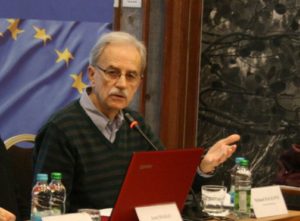 Mehmed Halilović a lawyer and a media expert said that discrimination and hate speech are closely linked, because they are stereotypes and prejudices. Noting that in BiH we do not have much expressed hate speech in the contents of traditional media, Halilović emphasized: “Hate speech has mostly moved to comments in the online sphere and most often has the dimension of national and religious intolerance.”
Mehmed Halilović a lawyer and a media expert said that discrimination and hate speech are closely linked, because they are stereotypes and prejudices. Noting that in BiH we do not have much expressed hate speech in the contents of traditional media, Halilović emphasized: “Hate speech has mostly moved to comments in the online sphere and most often has the dimension of national and religious intolerance.”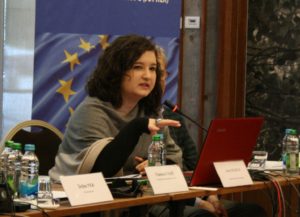 Representative of the Coalition Fighting Against Hate Speech in BiH, Vladana Vasic talked about the importance of monitoring media and reporting cases of hate speech to relevant institutions, such as the Regulatory Agency for Communications and judicial institutions, which is one of the Coalition’s activities.„In traditional and new media, the problem is journalistic content that has hate speech, especially if it is aimed at minority groups such as migrants and refugees, LGBT and women“, said Vasić and added that media need to be more critical towards hate speech in public space, publicly condemn it and mark it as inappropriate and sometimes even as a criminal offense.
Representative of the Coalition Fighting Against Hate Speech in BiH, Vladana Vasic talked about the importance of monitoring media and reporting cases of hate speech to relevant institutions, such as the Regulatory Agency for Communications and judicial institutions, which is one of the Coalition’s activities.„In traditional and new media, the problem is journalistic content that has hate speech, especially if it is aimed at minority groups such as migrants and refugees, LGBT and women“, said Vasić and added that media need to be more critical towards hate speech in public space, publicly condemn it and mark it as inappropriate and sometimes even as a criminal offense.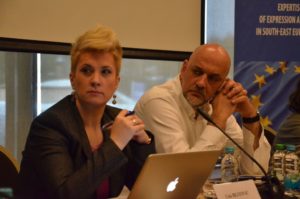 Federal Television is in the regulation of the program in accordance with the applicable laws as well as the internal codex that has existed for several years. According to Željko Tica, editor of the FTV news program, the only problem is the contact program in which viewers participate directly. “Before the viewer gets the opportunity to speak in the program, he needs to announce what he will ask and leave his number, which we call him to come to the program. There is still a chance for something unforeseen to happen, that a problematic statement goes into the ether, but the editor or journalist must react to this and condemn the inappropriate speech, “Tica pointed out.
Federal Television is in the regulation of the program in accordance with the applicable laws as well as the internal codex that has existed for several years. According to Željko Tica, editor of the FTV news program, the only problem is the contact program in which viewers participate directly. “Before the viewer gets the opportunity to speak in the program, he needs to announce what he will ask and leave his number, which we call him to come to the program. There is still a chance for something unforeseen to happen, that a problematic statement goes into the ether, but the editor or journalist must react to this and condemn the inappropriate speech, “Tica pointed out.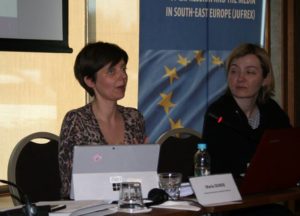 In the debate, the publication “
In the debate, the publication “